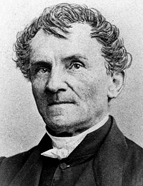

Schaefer still commands respect and interest today. In his day, his work was a novelty, at a time when European interest in Portugal and the circulation of printed works written in Portuguese were only slowly progressing or producing innovative results. However, in 1922, Fidelino de Figueiredo argued that “it is always difficult for foreigners to understand certain aspects of national life” and that “Schaefer’s History of Portugal has no scientific relevance and has become completely unacceptable in many of its pages” (Ruy d’Abreu Torres, “Schaefer, Henrique, in Joel Serrão (ed.), Dicionário de História de Portugal, vol. V, 1989, p. 500). Naturally, such a reading must be accepted with reservations, ninety years later, since the historiographical analysis of a work should only be made on the basis of the intellectual resources available to the author at the time. As we have seen, Schaefer explained that his access to Portuguese sources was limited. Furthermore, it must be understood that he was precisely one of the first of these ‘foreigners’ to enrich Portuguese historical knowledge with different and innovative ideas and concepts, Lusitanists and Lusophiles of whom we can and should be proud.
The history of the French and Portuguese editions of Geschichte von Portugal is very interesting, as it reveals different ways of receiving and disseminating a foreign historiographical work, resulting in different editorial products. This will naturally influence how posterity assesses Schaefer’s value as a historian. As early as the end of 1839, after the publication of the second volume (which covered the period of the Portuguese discoveries of the 15th century), there were already signs of the impact of Schaefer’s work on French publishers and the Portuguese intellectual community in Paris. A few scattered facts prove that, in the French capital, a diplomat (the Viscount of Carreira) and a historian (the Viscount of Santarém) were involved in various aspects of the French and Portuguese editions of Geschichte von Portugal. The Portuguese translation of the work was being carried out by the Viscount of Carreira, diplomatic representative in Paris, with notes and additions by Santarém, according to a letter dated 26 October 1839, addressed by Carreira to Joaquim José da Costa de Macedo, secretary of the Lisbon Academy of Sciences (Private Collection).
This work is financed by national funds through FCT - Foundation for Science and Technology, I.P, in the scope of the projects UIDB/04311/2020 and UIDP/04311/2020.
